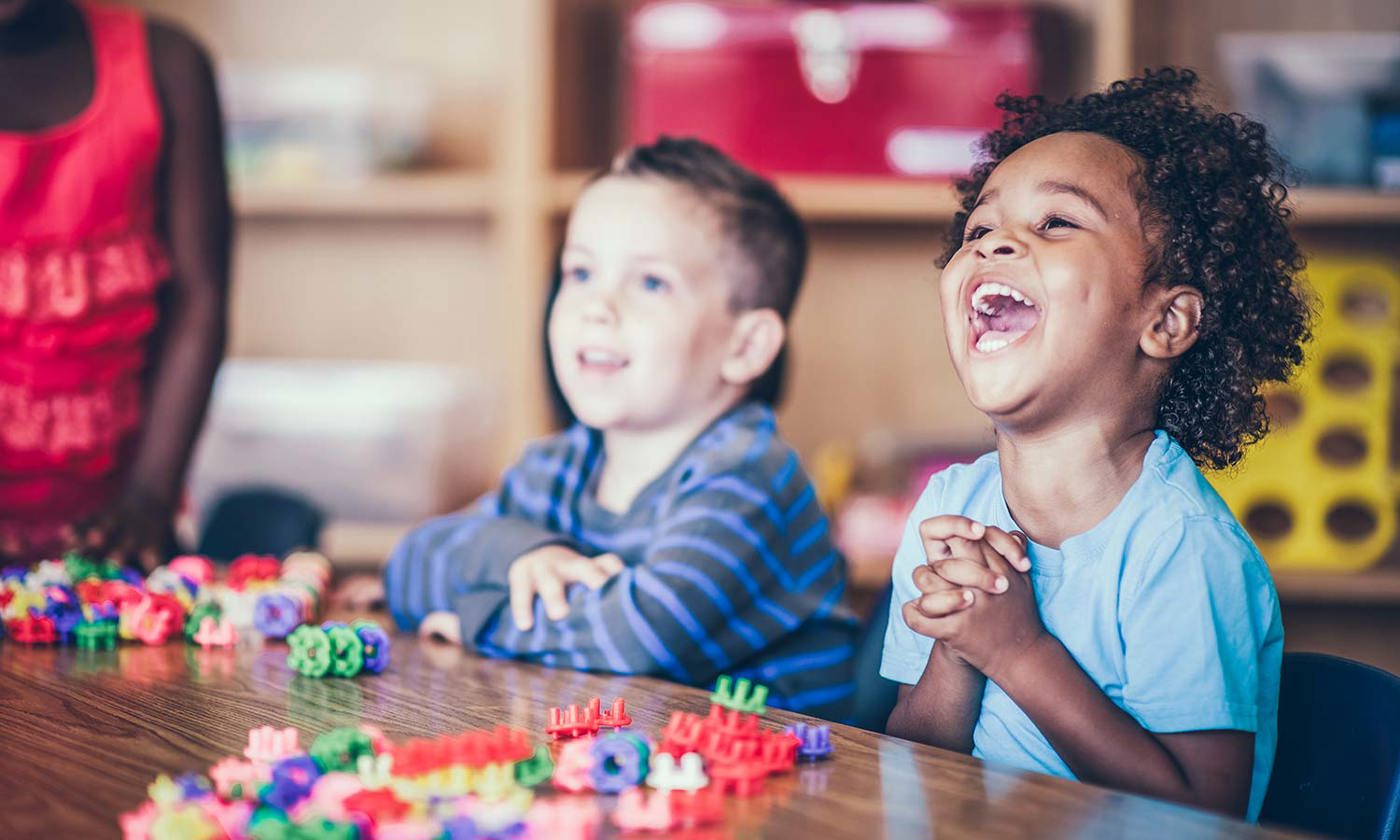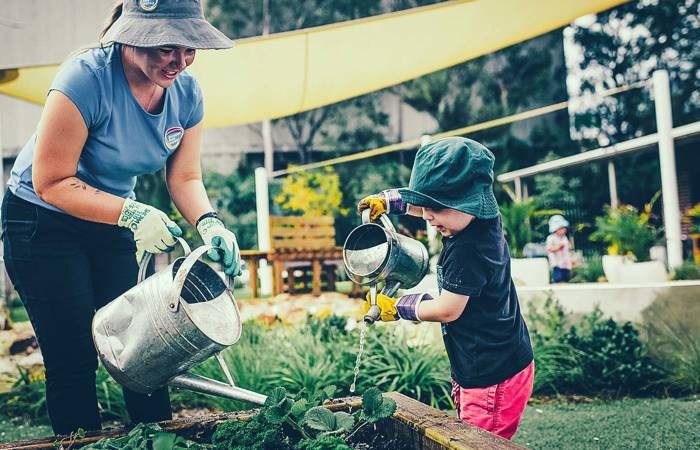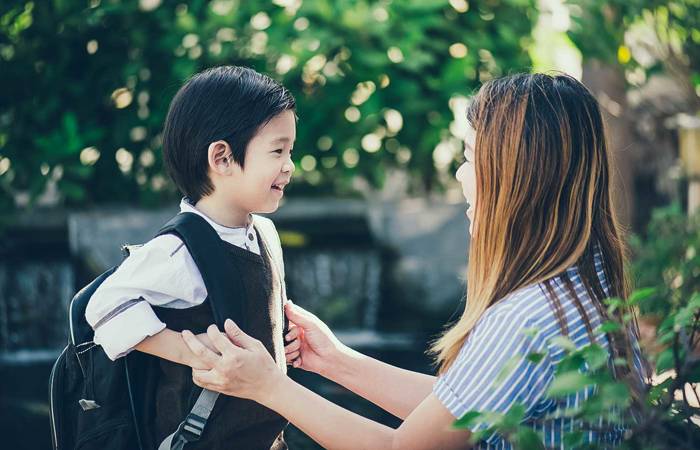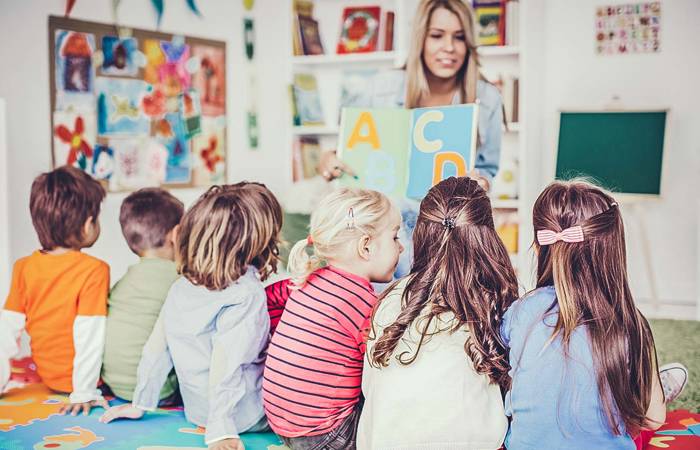Like what you see?
Sign up to receive more free parenting advice.
Thank you for subscribing to our newsletter!
Early Learning

Credit: iStock.com/FatCamera
After nearly 12 years, the Early Years Learning Framework (EYLF) will be reviewed, using the latest research on brain development, to change the way our under-fives are taught in early education centres.
The EYLF is the nationally approved learning framework for Australia. The framework has been designed for use by early childhood educators working in partnership with families, children’s first and most influential educators.
“While the EYLF is well regarded by the sector, it was developed in 2009,” says Samantha Page, CEO of Early Childhood Australia.
Ms Page explains that the review provides a perfect opportunity to ensure that contemporary research and practice in several areas is reflected in the EYLF.
“Over the past ten years, there has been significant research that can inform the review,” she says.
Ms Page highlights the following areas: The first is the importance of cultural connection, safety and identity for all children but particularly Aboriginal and Torres Strait Islander children.
The second is how language and speech development can be supported in early childhood settings.
“This sets strong foundations for literacy,” says Ms Page.
The third is how the capability and confidence of educators and teachers in curriculum areas such as science, engineering and maths can influence children’s developing interests.
The fourth is how children’s experiences of social and emotional wellbeing in the early years can influence their mental health and relationship skills later in life.
The fifth is highlighting the importance of spending time outdoors.
“Connecting and interacting with nature can boost young children’s health and wellbeing,” adds Ms Page.
Finally, while digital technology invades all aspects of our children’s lives, early childhood education can help children to develop healthy attitudes towards digital technology, as well as the skills to use it.
“We are also much more aware of the role of teachers and educators in early childhood settings and how they can influence the quality of programs provided to young children and the positive outcomes the children experience,” Ms Page says.
For this reason, Ms Page highlights that it is important for educators to have a voice in the update process.
“Educators are excited to provide input into the update; they use the EYLF every day when working with children and they are best placed to give feedback.”
We are also much more aware of the role of teachers and educators in early childhood settings and how they can influence the quality of programs provided to young children and the positive outcomes the children experience.Samantha Page
Stay up to date with the latest news and articles from First Five Years
Thank you for subscribing to our newsletter!
Play-based learning is the key to early learning
Ms Page says the EYLF has a specific emphasis on play-based learning and recognises the importance of communication and language.
“Play based learning is the way children make sense of the world and develop language, cognition, fine and gross motor skills, as well as social and emotional skills,” explains Ms Page.
In 2005, in a paper titled Uniquely Preschool, the authors explain that children who engage in quality play are more likely to have well-developed memory skills, language development and are able to self-regulate, leading them to better school adjustment and academic learning.
“Play is essential to children’s learning and development,” agrees Ms Page.
“It is the role of adults to support children’s play and to build these skills and aptitudes that children will need to thrive throughout their lives.
“Trained early childhood educators support and extend play to maximise learning through exploration, inquiry and problem-solving.”
Ms Page gives the play-based example of using water.
“Water play offers opportunities for social interaction; physical skills; concept development including scientific investigation; hand-eye coordination and skills of lifting, pouring and controlling; maths and science concepts such as floating versus sinking or full versus empty and measurements; concentration and problem-solving skills; and language such as a discussion about the uses of water.”
Ensuring the importance of nature-play
There is an increasing global movement to include outdoor nature play in the early years.
“Access to nature and natural environments is already featured in the EYLF,” says Ms Page.
“Increasing children’s involvement in nature can provide opportunities to develop resilience, confidence, motor coordination and fitness.”
International research points to the many benefits of nature play.
The first is the physical benefits of movement and coordination.
The second is that nature-based play is socially level, as outdoor manufactured play equipment sets a hierarchical social structure where the popular, stronger children get the privilege to be on the swing or slide.
The third is spirituality, simply learning about the life cycle of nature.
Finally, the emotional and mental wellbeing benefits can extend into adulthood.
A 2019 European study found that adults who had low levels of natural outdoor environments in their childhood had significantly worse mental health than those who were exposed to nature.
“If a service has minimal nature within their learning environments, they can get creative and consider options such as pots, tyres and tubs to house natural materials like stones, soil and sand,” recommends Ms Page.
“Natural environments can be developed inside, for example, flowers and plants can be grown in tubs.
“There are lots of resources available online to support educators to develop their natural environments.”
Bringing technology into the classroom
Ms Page says technology in the early learning environment can help young children develop a healthy attitude towards technology and use it to their benefit.
“Technology can be actively used to explore ideas in many ways and can be used indoors and outdoors to extend play,” she says.
“Using technology can mean that educators can quickly follow up on children’s interests.
“For example, following up on a child’s ‘show and tell’ on their holiday by searching online to look at a map of their holiday destination, or using technology outside to support an in-depth exploration of a garden, such as looking up types of insects or flowers to discuss and examine.”
Adult modelling can also play a key role in children developing a healthy attitude to digital technology use.






